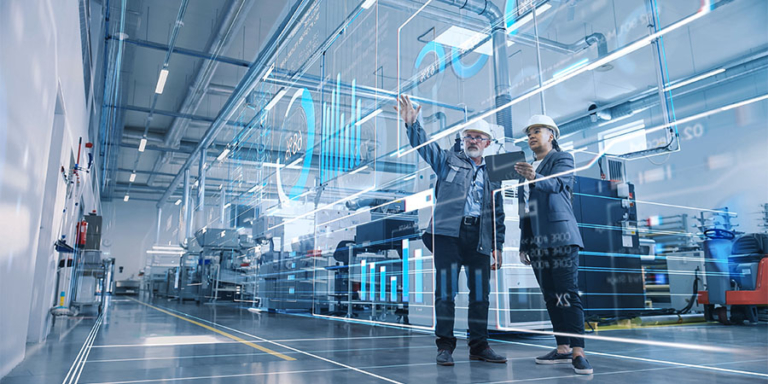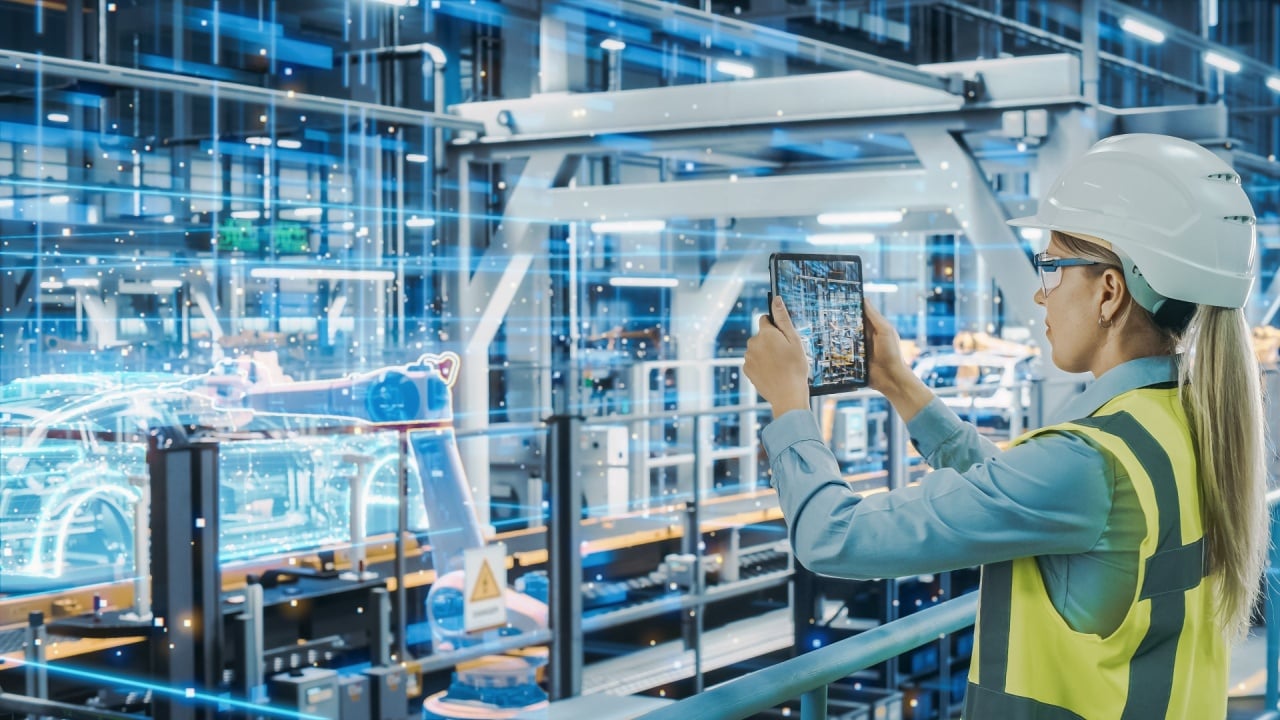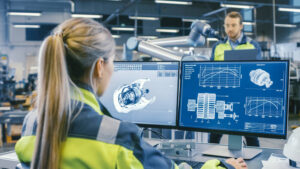Exploring Careers in Manufacturing: Opportunities, Challenges, and Future Prospects
Manufacturing is a cornerstone of modern economies, encompassing a wide array of sectors from automotive and aerospace to consumer electronics and pharmaceuticals. It’s an industry that has continuously evolved, integrating new technologies and methods to meet the ever-changing demands of global markets. If you’re considering a career in manufacturing or simply want to understand more about this vital sector, this comprehensive guide will delve into the various career paths, opportunities, challenges, and prospects in manufacturing.
The Evolution of Manufacturing Careers
Manufacturing careers have come a long way from the assembly lines of the early 20th century. The industry has transitioned from manual labour and rudimentary tools to high-tech environments driven by automation, robotics, and data analytics. This evolution has created a diverse range of career opportunities and specializations.
1. Traditional Manufacturing Roles
- Machinists: Historically, machinists operated manual machines to shape metal and other materials. Today, they work with computer numerical control (CNC) machines and are skilled in programming and operating these advanced tools.
- Assemblers: Assemblers are responsible for putting together parts and components to create finished products. This role often requires attention to detail and precision, especially in industries like aerospace and electronics.
2. Advanced Manufacturing Careers
- Robotics Engineers: With the rise of automation, robotics engineers design, build, and maintain robots used in manufacturing processes. Their work ensures that production lines operate smoothly and efficiently.
- Process Engineers: Process engineers focus on optimizing manufacturing processes to improve quality and efficiency. They analyze production workflows, troubleshoot issues, and implement improvements.
3. Emerging Roles
- Data Analysts: In the era of Industry 4.0, data analysts play a crucial role in interpreting data from various sources to drive decision-making and improve manufacturing processes.
- Additive Manufacturing Specialists: Also known as 3D printing specialists, these professionals use additive manufacturing technologies to create complex parts and prototypes.

Key Skills for a Manufacturing Career
A successful career in manufacturing requires a blend of technical skills, problem-solving abilities, and soft skills. Here’s a breakdown of essential skills needed in this field:
1. Technical Skills
- Mechanical Aptitude: Understanding mechanical systems and how they work is fundamental, especially for roles involving machinery and equipment.
- Computer Skills: Proficiency with computer-aided design (CAD) software, CNC programming, and other digital tools is increasingly important.
- Technical Knowledge: Familiarity with materials, production methods, and quality control processes is crucial for many manufacturing roles.
2. Problem-solving and Analytical Skills
- Troubleshooting: The ability to quickly diagnose and resolve issues is essential, particularly in high-tech manufacturing environments.
- Analytical Thinking: Data analysis and process optimization require strong analytical skills to interpret data and make informed decisions.
3. Soft Skills
- Communication: Effective communication is vital for collaborating with team members, reporting issues, and implementing changes.
- Attention to Detail: Precision and accuracy are crucial in manufacturing to ensure that products meet quality standards and specifications.
Career Paths in Manufacturing
Manufacturing offers a wide range of career paths, each with its own set of responsibilities and opportunities. Here’s an overview of some prominent career options:
1. Production and Operations Management
- Production Manager: Oversees the production process, manages staff, and ensures that products are manufactured efficiently and to high-quality standards.
- Operations Manager: Focuses on optimizing overall operations, including supply chain management, resource allocation, and process improvement.
2. Quality Assurance and Control
- Quality Control Inspector: Examines products and processes to ensure they meet industry standards and specifications. This role involves testing, inspecting, and documenting findings.
- Quality Assurance Manager: Develops and implements quality assurance policies and procedures to ensure that products consistently meet quality standards.
3. Engineering and Design
- Mechanical Engineer: Designs and develops mechanical systems and components used in manufacturing processes.
- Industrial Designer: Creates and refines product designs, focusing on functionality, aesthetics, and manufacturability.
4. Supply Chain and Logistics
- Supply Chain Coordinator: Manages the flow of materials and products through the supply chain, ensuring timely and cost-effective delivery.
- Logistics Manager: Oversees the transportation, warehousing, and distribution of products, optimizing logistics operations for efficiency.
5. Maintenance and Support
- Maintenance Technician: Performs routine maintenance and repairs on machinery and equipment to ensure smooth operations.
- Technical Support Specialist: Provides support for technical issues related to manufacturing equipment and systems.
The Challenges of Working in Manufacturing
While manufacturing offers numerous opportunities, it also comes with its own set of challenges. Understanding these challenges can help individuals prepare for and navigate their careers in this sector.
1. Technological Advancements
- Keeping Up with Technology: The rapid pace of technological advancements requires constant learning and adaptation. Professionals must stay updated on the latest tools, software, and machinery.
- Automation and Job Displacement: Automation can lead to job displacement, necessitating upskilling and reskilling to stay relevant in the evolving job market.
2. Health and Safety Concerns
- Workplace Safety: Manufacturing environments can be hazardous, requiring adherence to strict safety protocols and regulations to prevent accidents and injuries.
- Ergonomic Challenges: Repetitive tasks and manual labour can lead to ergonomic issues, making it essential for employers to implement measures to protect workers’ health.
3. Global Competition
- Pressure on Cost Reduction: Global competition puts pressure on manufacturers to reduce costs while maintaining quality, leading to increased demands on efficiency and productivity.
- Supply Chain Disruptions: Disruptions in the global supply chain, such as those caused by natural disasters or geopolitical issues, can impact manufacturing operations.

The Future of Manufacturing Careers
The future of manufacturing is being shaped by several key trends and innovations. Understanding these trends can provide insights into future career opportunities and challenges.
1. Industry 4.0
- Smart Manufacturing: Industry 4.0 is characterized by the integration of smart technologies, such as the Internet of Things (IoT), artificial intelligence (AI), and big data analytics, into manufacturing processes. Careers in this area will focus on leveraging these technologies to enhance production efficiency and quality.
- Cyber-Physical Systems: The convergence of physical and digital systems will lead to new roles in managing and optimizing cyber-physical systems.
2. Sustainable Manufacturing
- Green Manufacturing: There is a growing emphasis on sustainability and reducing environmental impact. Careers in this field will focus on developing and implementing eco-friendly manufacturing processes and materials.
- Circular Economy: The circular economy model promotes recycling and reusing materials. Professionals will work on designing systems that minimize waste and maximize resource efficiency.
3. Advanced Manufacturing Technologies
- Additive Manufacturing: 3D printing and additive manufacturing technologies are revolutionizing product development and production. Careers in this field will involve designing and operating advanced additive manufacturing systems.
- Nanotechnology: The application of nanotechnology in manufacturing opens up new possibilities for creating materials with unique properties. Careers will focus on researching and applying nanotechnology to various manufacturing processes.
4. Skills and Education
- Lifelong Learning: As technology continues to advance, ongoing education and training will be essential. Professionals will need to engage in lifelong learning to keep their skills current and relevant.
- STEM Education: Emphasis on science, technology, engineering, and mathematics (STEM) education will play a crucial role in preparing the next generation of manufacturing professionals.
Manufacturing careers offer a diverse range of opportunities across various sectors, each with its unique challenges and rewards. From traditional roles to cutting-edge positions in advanced manufacturing and technology, the industry is dynamic and ever-evolving. Understanding the key skills required, the career paths available, and the future trends shaping the industry can help individuals make informed decisions about their careers in manufacturing.

As manufacturing continues to adapt to new technologies and global demands, professionals in this field will play a crucial role in driving innovation, efficiency, and sustainability. Whether you’re just starting your career or looking to advance within the industry, manufacturing offers a wealth of opportunities to explore and pursue.




Post Comment